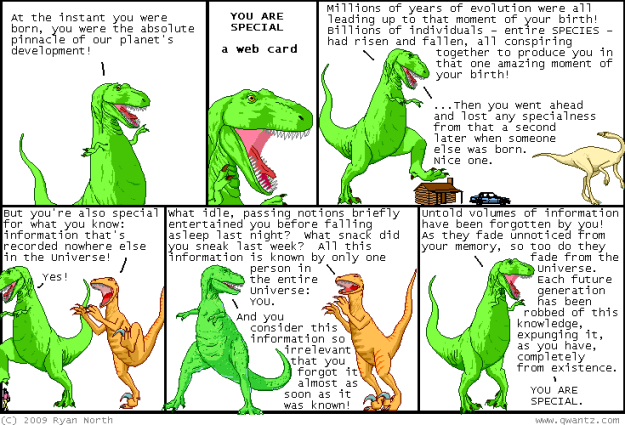I recently got to travel to a remote Native Alaskan village (population ~70). I spent a few days teaching in the school, which consisted of two classes: 5 primary students, and 6 secondary students. With one teacher for five grades, the older kids helped the younger kids and everyone worked together. I was surprised at how well the students got along; conflicts were usually resolved quickly without the teacher needing to interfere. The school in general seemed very close-knit, more like a family.
Seeing that extreme example of small-town community shed light on my own small town, and community dynamics in general. The town where I live is just small enough that there are no cliques. One woman I know describes it thus: there are two types of people in the world, shiny people and hairy people; this is a place where shiny people and hairy people mix. It’s true; in a small, isolated group, everyone gets along because they have to.
My favorite feature of small-group community is the lack of social stereotyping and categorizing. It’s not just that shiny people and hairy people mix; there’s no need to be one or the other, to associate yourself with any such identifying paradigm. The prevalence of social categorization in the world is something that has always bothered me. There’s a general pressure to find where you fit in, to identify yourself with a social/personality group; and once you find your social group, to conform even more to its norms. It just drives me crazy that even if your social group is “people who don’t care about their appearance”, there are still norms of dress and material accessories.
I suppose that categorization is an inevitable result of having a large population or a large number of anything. Things like categorizing music and literature into genres are helpful when you’re shopping, but I don’t think it’s necessary to use those genres to categorize social groups and then reinforce their categorization. I absolutely loathe the question “what kind of music do you listen to?” as a social identifier.
All of the best experiences of my life have been within small, single-group communities. Within those groups, the lack of social categorization makes me feel free and more genuinely myself. In a small place, you get along with people who you wouldn’t normally be friends with, given a wider selection. Categories don’t disappear entirely, but you get to know more types of people, and there is often only one person in each category, giving everyone a chance to be unique and to define their own social role.
Of course, a significant disadvantage of such a circumstance is the lack of opportunities to specialize and explore interests that don’t interest anybody else. And small towns have their own problems. Native villages, including the one I visited, have huge problems with drugs, alcohol, and domestic violence. Those problems also exist in my town, and they also lack social categorization, not being confined to certain parts of town or certain groups of people, or even behind closed doors like it might be elsewhere. They can’t be avoided. Everyone knows everyone else’s business, and everything is conserved: your actions, your mistakes, your relationships, your embarrassments, and others’. All that really pisses me off sometimes, and sometimes I long for anonymity, for myself and for the kid whose father shows up drunk to yell at her in public. Still, for selfish reasons, I think I prefer this type of community. The blurring of stereotypes and social lines, both positive and negative, gives me the freedom to be myself and to know more surely who that is.

